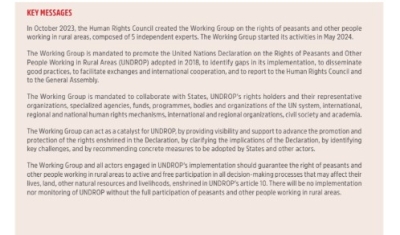12 December 2024
We are pleased to announce the publication of a new Research Brief authored by Dr. Baïna Ubushieva, which examines the implementation and global impact of the United Nations General Assembly (UNGA) Resolution 76/300 recognizing the human right to a clean, healthy and sustainable environment (HR2HE).
Resolution 76/300 as a catalyst for transformative changes worldwide
Although non-binding, Resolution 76/300 has driven significant legal and policy reforms worldwide since its adoption. The brief emphasizes that the HR2HE is not a new right – prior to the resolution, 80% of UN Member States had already recognized it in their constitutions or laws. Resolution 76/300’s transformative power lies in reshaping the behavior of States, international bodies, and businesses, fostering stronger links between human rights and environmental and climate governance. To date, over 85% of UN Member States have incorporated this right into their national legal frameworks, underscoring its growing acceptance.
Beyond national impacts, the resolution has influenced global initiatives such as the Kunming-Montreal Global Biodiversity Framework, the Sharm el-Sheikh Implementation Plan and the COP 28 Global Stocktake, advancing the alignment of environmental and climate actions with human rights principles.
The brief highlights the HR2HE’s potential to evolve into customary international law or a general principle of law, solidifying its status under international law. It explores how national, regional and international practices are shaping its trajectory toward becoming a binding norm. The resolution has influenced State behavior, influenced legal systems, and reinforced global efforts to address the ongoing triple planetary crisis of climate change, pollution and biodiversity loss. It also underscores the potential influence of upcoming legal developments, including the anticipated advisory opinion of the International Court of Justice on States’ obligations regarding climate change, where the HR2HE is likely to feature prominently.
The Research Brief offers a comprehensive analysis of the HR2HE’s legal evolution and its role in fostering environmental and climate justice. It was presented on 11 December 2024 at the Geneva Academy, providing an opportunity to explore this pivotal issue and its implications for international law and global governance. The event will brought together leading experts, including Astrid Puentes Riaño, the current UN Special Rapporteur on HR2HE, and David R. Boyd, her predecessor.





